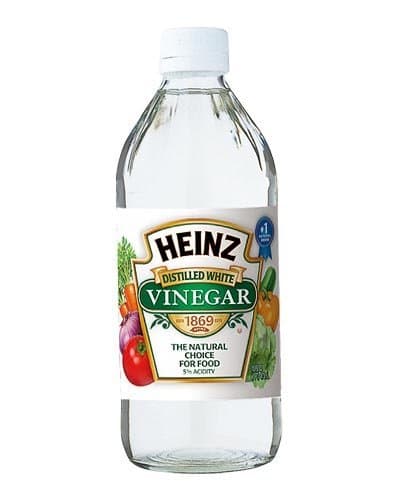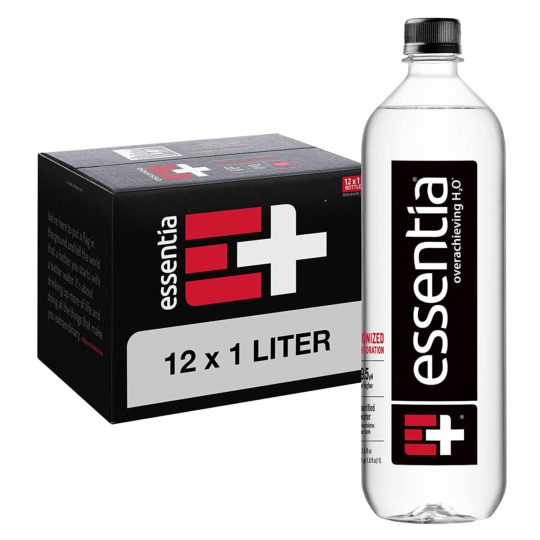Updated on April 9th, 2023
Maybe you’re one of those people that throw out the pickle jar with the juice after the last pickle has been removed. It’s forgivable because many people have no idea that the leftover pickle juice is great for many things, aside from pickling. There are also loads of supposed health benefits that come with its use. Athletes particularly love pickle juice for its electrolyte content and relief from muscle cramps.
In meals, pickle juice adds unique flavors and can be introduced into many different recipes. As a result of its salty and vinegary taste, people appreciate its uniqueness to a regular dish of mashed potatoes. But what happens if even the leftover pickle juice gets exhausted?
It’s a good thing that several alternatives can be experimented with to replicate the flavors of pickle juice in recipes. These suggested pickle juice alternatives have a similar flavor and nutritional value. What’s more, most pickles’ acidity, sweetness, and sour balance are also present in them. Find out how to properly use these substitutes in place of pickle juice in your recipes.
What is Pickle Juice?
Pickle juice is a salty tasting, vinegar-rich beverage containing salt and other minerals used to rehydrate the body. It contains a lot of electrolytes and antioxidants and is popular as one of the alternatives to traditional sports drinks.
Cucumbers, water, and salt are the three main constituents of pickle juice. Cucumbers contain Lactobacillus bacteria, a naturally occurring probiotic that dwells on the cucumber’s skin and participates in fermentation. Pickles sold in stores are prepared slightly differently; producers typically remove the bacteria and replace it with vinegar, resulting in what is known as pickle juice.
Pickle juice is said to help boost the immune system, assist the digestive process, relieve muscle cramps, aid in post-exercise rehydration, blood sugar regulation, relief of menstrual cramps, weight loss, cure hangovers, and even sweeten and combat bad breath when consumed regularly. It is, however, worth mentioning that some of these statements still need to be supported by scientific evidence.
Uses of Pickle Juice in Recipes
Pickle juice has many uses in cooking procedures. It is a versatile ingredient that works in a variety of ways. For example, some people use pickle juice to add a bit of liveliness to creamy meals that tend to have a uniform taste for a different variety of flavors. Pickle juice can also be used to tenderize meat in marinades, salad dressings, and sauces, and it can even be re-pickled.
Some of the common recipe examples in which pickle juice can be used include the following:
- Pickle brine chicken
- Pickle brined tofu
- Dill Pickle Jerky
- Pickle juice marinated chicken thighs
- Chick-fil-A-Sandwich
- Dill Pickle Brined Grilled Pork
- Crispy fried tofu sandwich
- Baked Dill Pickle Chicken wings
- Beef stroganoff
- Dill pickle beef skewers
- Dill pickle potato salad
- Dill Gouda mashed potatoes
- Pickle popcorn
- Hamburger dill pickle biscuit casserole
- Homemade mayonnaise
- Pickle juice bread
Substitutes for Pickle Juice
When you check in your store and find that you have run out of pickle juice, it might seem like a bit of a problem. However, many substitutes can replace pickle juice in recipes that call for it.
These substitutes work like pickle juice, with very similar taste profiles. Some even boast of the health benefits that pickle juice is believed to possess. Consider the following options:
Vinegar
Vinegar is responsible for many of the health advantages of pickle juice, and it can thin your blood, which can help those with cardiovascular problems. Drinking a little vinegar before meals improves blood sugar regulation, and its antibacterial characteristics are beneficial to dental health.
Essentially, when pickle juice is being made, cucumbers are marinated in a mixture of vinegar, herbs, and spices, giving the pickles and pickle juice a sour flavor. However, because pickle juice is made mostly of vinegar, vinegar is a good substitute for stand-in if you don’t have any pickle juice on hand.
Homemade Pickle Juice
Try creating some yourself if you’re in a rush and can’t find pickle juice. Ingredients that are required include fresh dill, pickling spices, garlic, water, vinegar, and salt.
In a saucepan, whisk together all of the ingredients until smooth, cook until the sugar and salt have completely dissolved, then refrigerate after dispensing. Before using, please give it a good shake, and then shake it again at least once a day to keep the spices and herbs from sinking to the bottom of the jar or container.
Make your pickling spice blend if you don’t have any on hand. Mustard seeds, a clove, black peppercorns, fresh or fried jalapeno, and fresh ginger are all good additions. Customize the mix with any other herbs and spices you choose, but bear in mind that once the flavor profiles are concentrated through the pickling process, they can become intense and overpowering.
Water
When it comes to cramps or hydration, the most versatile drink on the planet is an excellent substitute for pickle juice, as we should all know. Water with a few electrolytes, such as a pinch of Himalayan (pink) salt and sugar, works wonders for cramp relief.
Replace pickle juice with water if you’re only using it to relieve muscle cramps. When dehydrated, muscle cramps arise because dehydration causes overuse of particular muscles, which increases the likelihood and severity of cramping. Water can thus work in this instance as a replacement for pickle juice.
Frequently Asked Questions (FAQs)
Should I soak cucumbers before making pickles?
Soak cucumbers in ice water for 4 to 5 hours before pickling for a quick and easy approach to produce crisp pickles. When cucumbers are soaked in a solution containing lime or calcium hydroxide, the amount of acid in the cucumber tissue changes.
Can you add water to the pickle jar?
If necessary, add more water and vinegar (in equal parts) to submerge the vegetables in brine completely. It is not suggested for canning or dry-storing pickles because this alters the pH of the pickling solution, compromising its capacity to preserve food safely. So warm the liquid gently before pouring it over the vegetables.
Can I use lemon juice instead of pickle juice?
Instead of vinegar, lemon juice can produce pickles. Pickling is steeping foods in an acidic liquid, most often vinegar. You can use lemon juice instead of vinegar for pickling projects if you don’t like the taste of vinegar or have a surplus of lemons.
Conclusion
It’s about time you started experiencing the tasty advantages of fermented cucumbers if you haven’t already done so. If, however, you find yourself totally out of pickle juice in your store, there are a handful of substitutes that should work fine.
No one substitute can stand ineffectively for the many varying advantages of pickle juice. The flavor is one-of-a-kind in various recipes. However, most of these alternatives will suffice when you don’t have any on hand. The majority will provide comparable outcomes, but you’ll have to experiment with them in your recipes.


